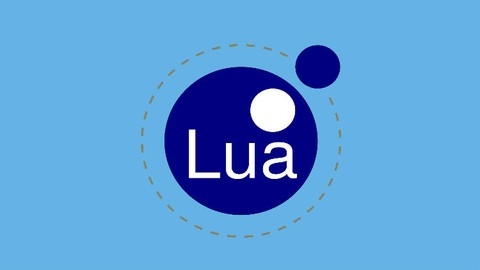Lua is a powerful and lightweight scripting language that’s incredibly versatile, making it a popular choice for game development, embedded systems, and even web applications.
Learning Lua can open doors to exciting opportunities in the tech industry, allowing you to create your own games, automate tasks, and contribute to various projects.
Finding the right Lua programming course on Udemy can be a challenge, especially with so many options available.
You’re searching for a program that’s comprehensive, engaging, and taught by experienced instructors, but also aligns with your learning style and goals.
We’ve meticulously analyzed countless courses and recommend Master Lua Programming and Create Amazing Games with LÖVE! as the best overall course on Udemy.
This program stands out for its hands-on approach, guiding you through building complete games while mastering Lua and the LÖVE framework.
It combines foundational Lua concepts with practical game development, offering a well-rounded learning experience.
This is just one of the many excellent Lua courses available on Udemy.
Keep reading to explore our full list of recommendations, tailored to different learning styles, goals, and skill levels.
Master Lua Programming and Create Amazing Games with LÖVE!
The course starts by guiding you through installing LÖVE, the programming environment you’ll be using, and understanding project structure.
You’ll then dive into learning Lua programming fundamentals like variables, control statements, loops, functions, and tables.
After the Lua basics, you’ll jump into building your first game - a shooting gallery.
You’ll learn core concepts like loading assets, handling user input, using timers and randomness, and displaying graphics.
The course builds up complexity as you create a top-down shooter game next, covering player movement, sprite rotation, basic collisions, projectiles, and enemy behavior.
The main project is a full-fledged platformer game utilizing physics, animations, tiled maps, camera systems, and multiple levels.
You’ll implement features like jumping, collision detection, importing tiled data, transitioning between levels, and saving progress.
The course then explores deploying your games to the web using Love.js and building for mobile with Android tools.
You’ll learn about adapting to different screen sizes, generating APKs, installing on devices, and publishing your apps.
Throughout the projects, you’ll solidify your skills with coding challenges and assessments.
The course covers practical topics like using the command line and Git for version control.
You’ll gain hands-on experience building complete games while mastering Lua and the LÖVE framework.
Lua Scripting: Master complete Lua Programming from scratch
You’ll start with an introduction to Lua, its history, and why you might want to learn it.
The course covers installing Lua on different operating systems like Linux, MacOS, and Windows, ensuring you’re ready to start coding right away.
From there, you’ll dive into the fundamentals of Lua programming, including variables, expressions, conditionals, and logical operators.
You’ll learn how to manipulate strings, work with standard library modules, and understand patterns in string find operations.
The course then moves on to loops and functions, which are essential for any programming language.
You’ll explore different types of loops, variable scope, handling input from the keyboard, and writing your own functions.
One of the key topics covered is tables, which are a powerful data structure in Lua.
You’ll learn how to create and manipulate tables, loop through key-value pairs, and use tables as configuration files or matrices.
As you progress, you’ll delve into more advanced concepts like metatables and object-oriented programming in Lua.
This will allow you to create classes and objects, laying the foundation for building complex applications.
The course also covers higher-order functions, closures, variadic functions, and coroutines, which are advanced features of Lua that can enhance your programming skills.
Importantly, you’ll learn how to integrate Lua with C, a powerful combination that allows you to leverage the strengths of both languages.
You’ll work with the Lua stack, call Lua functions from C, and vice versa, as well as handle script errors and userdata.
To put your skills into practice, the course includes a section on creating a game loop using SDL (Simple DirectMedia Layer) and integrating Lua for player movement control.
If you’re interested in using Lua with Roblox, there’s a bonus section dedicated to Roblox Studio.
You’ll learn about Roblox parts, properties, vectors, colors, object instances, events, humanoid properties, players, characters, models, assets, terrain editing, day-night lighting, leaderboards, debugging, and code inspection.
The course even covers compiling Lua 5.4 from source, giving you a deeper understanding of the language’s inner workings.
Complete Roblox Lua: Start making Games with Roblox Studio
This course starts by introducing you to the fundamentals of Lua, covering variables, data types, operators, control structures, and core language features.
You’ll learn how to work with strings, loops, functions, and tables, which are essential building blocks for any Lua program.
Once you have a solid grasp of Lua basics, the course dives into Roblox-specific concepts.
You’ll learn how to set up Roblox Studio, reference different types of parts, and work with scripts to control game objects.
The course covers important topics like vector math, the wait function, basic part movement, and handling events like “touched.”
As you progress, you’ll learn how to create new instances with scripts, add click detectors, apply forces, and use constraints.
The course also teaches you how to set up spawn locations, manage player data, and create leaderboards using Leaderstats.
One of the highlights is learning about the three types of GUIs in Roblox and how to navigate the API references on your own.
This will empower you to continue exploring and learning beyond the course material.
The course includes a hands-on project where you’ll create a simple Roblox game called an “Obby” (obstacle course).
You’ll model the game environment, add checkpoints, leaderboards, disappearing stairs, and moving parts.
This practical experience will solidify your understanding of the concepts covered throughout the course.
Moving on to intermediate topics, you’ll learn how to publish your Roblox game, add pictures to GUIs, store player data using DataStoreService, and create multiple places within a single game.
The course even covers teleporting between different places, which is a useful technique for more complex games.
Lua’s Core Syntax (Programming Language)
The course starts by introducing you to the basics of Lua with “Hello World” examples.
It quickly moves on to covering the different data types in Lua, giving you a solid foundation to work with.
You’ll then dive into math and string functions, learning how to perform various mathematical operations and manipulate strings effectively.
The course dedicates separate sections to math functions like random number generation and more advanced math concepts.
Once you have a grasp of the fundamentals, the course teaches you how to control program flow using conditionals and loops.
You’ll learn different types of loops like for loops, while loops, and repeat loops, empowering you to write more complex programs.
Tables, which are Lua’s powerful data structures, are covered in-depth.
You’ll learn how to create, access, and manipulate tables in different ways.
The course also explores table functions that can make working with tables more efficient.
A significant portion is dedicated to functions in Lua.
You’ll not only learn how to define and call functions but also how to use closures, which are a powerful concept in functional programming.
Finally, the course introduces you to coroutines, which allow you to suspend and resume functions, enabling cooperative multitasking in Lua programs.
Throughout the course, you’ll be writing code and practicing the concepts you learn, solidifying your understanding of Lua’s core syntax.
The Complete Lua Programming Course: From Zero to Expert!
This course starts with an introduction to Lua and guides you through installing it on different operating systems like Windows, Linux, and macOS.
You’ll then dive into the fundamentals of Lua, covering lexical conventions, data types, values, booleans, logical operators, input/output, and tables.
The course takes you through functions, including those with multiple results and variadic functions, along with several solved problems to reinforce your understanding.
Next, you’ll explore control structures like conditionals, nested conditionals, and various types of loops, again with solved problems to practice.
The course then delves into essential data structures such as arrays, matrices, stacks, queues, dictionaries (maps), sets, and binary trees, with implementations and solved problems for each.
A significant portion is dedicated to graphs, covering representations, implementations, and algorithms like Depth-First Search (DFS), Breadth-First Search (BFS), and Topological Sort.
Each algorithm is accompanied by an introduction and solved problems to solidify your grasp.
Throughout the course, you’ll encounter numerous solved problems that allow you to apply the concepts you’ve learned in practical scenarios.
These problems cover a wide range of topics, from simple arithmetic to more complex data structure and algorithm challenges.
Roblox Studio 2023: Complete Lua Scripting for beginners
This course starts with the basics, like setting up your account and understanding the Studio interface.
You’ll learn about different types of scripts and how to use them, as well as an introduction to GUI before diving into scripting.
The meat of the course covers Lua fundamentals - variables, functions, conditions, tables, and loops.
You’ll then move on to more advanced topics like events, bindable events, and remote events.
These concepts are crucial for building interactive experiences in Roblox.
A major part of the course is dedicated to creating a lobby system from scratch.
You’ll learn how to prepare modules, handle invitations, create notification systems with animations, and manage event invitations.
This hands-on project will reinforce your understanding of Lua scripting while building a practical application.
The course then guides you through developing an obby mini-game integrated with the lobby system.
You’ll prepare the obby level, handle player spawning, implement traps and player deaths, and manage the game’s logic, including determining the winner.
This project will test your ability to combine various Lua concepts into a functional game.
Towards the end, you’ll explore persistence and GUI development.
You’ll learn how to create a profile service, handle player data, implement a money system, and integrate it with the mini-game.
This section will teach you how to save and retrieve data, as well as enhance the user experience with GUI elements.
Throughout the course, you’ll be coding along with the instructor, ensuring you gain practical experience with Lua scripting in Roblox Studio.
The projects are designed to be challenging yet achievable, helping you solidify your understanding of the concepts covered.
Learn to Code by Example with LÖVE : Love2d Lua Basics
You’ll start by setting up your development environment, installing LÖVE and any required plugins.
The course even gives you a sneak peek at some popular LÖVE games.
Once you’re set up, you’ll dive into the core concepts of LÖVE’s program structure.
You’ll learn how to create a blank LÖVE program, customize the window size, and work with configuration files.
From there, you’ll write your first “Hello World” program to display text.
A significant portion of the course focuses on the essentials of Lua programming within the LÖVE framework.
You’ll learn about variables, conditionals, functions, scopes, tables, and loops through interactive examples and quizzes.
This solid foundation will prepare you for working with LÖVE’s graphics, sound, and input handling capabilities.
You’ll learn how to draw primitive shapes, handle user input from the mouse and keyboard, play sounds, and display images (sprites).
Finally, you’ll package and distribute your LÖVE program as a standalone application.
Advance LUA OOP Networking
The course starts by introducing you to the basics of Lua programming and the Love 2D game engine.
You’ll learn about variables, tables, and different types of loops like for, while, and repeat until.
The course covers functions and if conditions, allowing you to write more complex programs.
Once you’ve mastered the fundamentals, the course dives into advanced Lua concepts for Roblox development.
You’ll explore nested for loops and if statements, as well as the math library and trigonometry functions.
With trigonometry, you’ll learn how to create circles, shapes, and generate patterns and designs.
The string library is covered in-depth, providing you with tools for text manipulation.
The course also includes an assignment to solidify your understanding.
Moving on, you’ll delve into the bit32 library, learning about bitwise operations and how they differ between Roblox’s Lua implementation and standard Lua versions like 5.4 and 5.2.
Finally, the course covers metatables and metamethods, which are powerful features in Lua for defining the behavior of objects.
You’ll learn about metamethods like __tostring, __add, __sub, __mul, __index, __newindex, __pairs, __len, and __concat.
The course even shows you how to improve these metamethods to return answers in table form instead of just printing them.
Lua Programming: Complete Course [2020]
The course starts with an introduction to Lua, explaining what it is and why you should choose it.
You’ll then learn how to set up your development environment and write your first “Hello World” program.
From there, the course dives into the fundamentals of Lua, including chunks, lexical conventions, variables, data types (nil, booleans, numbers, and strings), and their respective operations and library functions.
You’ll also learn about tables, which are Lua’s primary data structure, covering table indices, constructors, arrays, lists, sequences, and traversal.
The course then moves on to functions, teaching you how to define and call them, handle multiple results, and work with variadic functions and table.unpack.
You’ll also learn about input/output operations, including the I/O library, simple I/O model, and complete I/O model.
Control structures are covered in-depth, with lessons on if-then-else statements, loops (while, repeat-until, numerical for, and generic for), and break and return statements.
The course also explores closures, functions as first-class values, and lexical scoping.
Pattern matching is another important topic covered, including pattern matching functions and patterns themselves.
You’ll even get to solve an assignment on the N-Queens Puzzle to reinforce your understanding.
The course also covers date and time functions, modules and packages (including how to write your own modules), and data structures like arrays, matrices, linked lists, queues, and deques.
You’ll learn about iterators and the generic for loop, which are essential for working with data structures in Lua.
Throughout the course, you’ll find quizzes and assignments to test your knowledge and reinforce the concepts you’ve learned.
Lua Programming - Master the Basics
The course starts by introducing you to Lua and getting your first program up and running with a simple “Hello World” app.
This gives you a taste of what’s to come and gets you familiar with the Lua standalone interpreter right away.
From there, you’ll dive into the core concepts of Lua programming.
Control structures like loops and conditionals are covered in-depth through videos and coding demos.
You’ll learn how to work with Lua’s powerful tables, which are similar to arrays in other languages but much more flexible.
Once you have the fundamentals down, the course moves on to writing your own functions in Lua.
The videos and demos really reinforce how functions work and how to build them yourself.
This is a crucial skill for any programmer.
Being able to implement logic like this is essential.
Finally, you’ll get an understanding of how to use libraries in Lua to extend the functionality of your programs.
Libraries provide pre-built code that you can tap into rather than having to write everything from scratch.
You will learn with this course by watching videos, following coding demos, and writing programs yourself.
The syllabus covers all the key building blocks like control structures, tables, functions, and libraries that you need to start programming effectively in Lua.
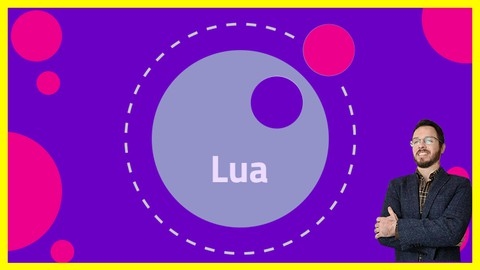
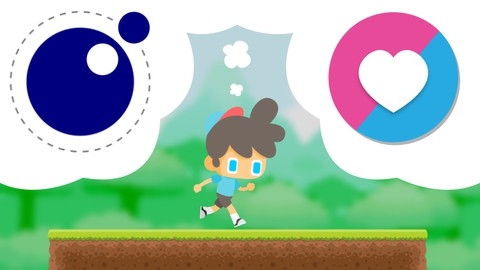

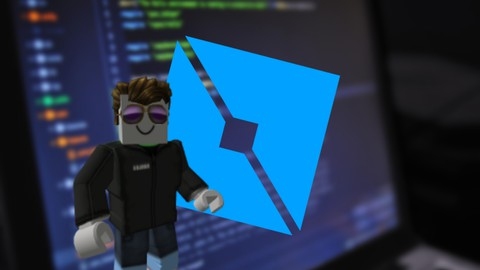


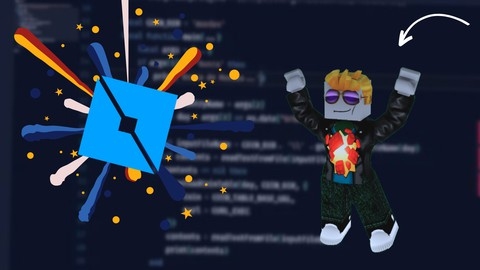
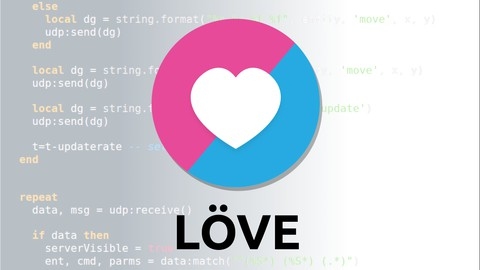

![Lua Programming: Complete Course [2020]](/img/best-lua-programming-courses-udemy/2714964_LuaProgrammingCompleteCourse2020.jpg)
